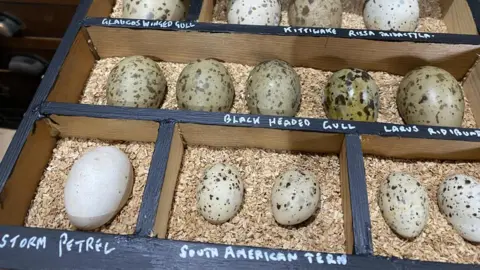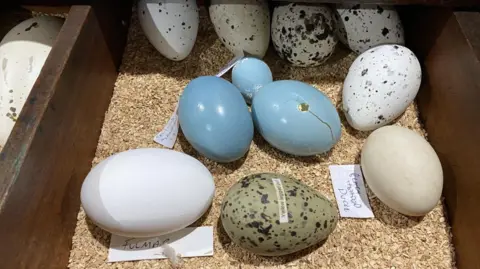Thousands of rare bird eggs seized by police
 Gloucestershire Constabulary
Gloucestershire ConstabularyMore than 5,000 eggs were seized from a rural property as part of an international operation to tackle the illegal wildlife trade.
No arrests were made after the rare eggs were found at an address in Longhope in the Forest of Dean in November. Gloucestershire Police is still investigating.
More than 50,000 eggs have been seized, and 16 people arrested since the National Wildlife Crime Unit's (NWCU) operation first began in Norway in 2023.
"Our wildlife is vitally important in this country and something that we should be targeting," PC Cath McDay said.
"While our officers will rightly always focus on crimes involving drugs, violence and sexual assault, there is still a need to protect our wildlife.
"Unfortunately, some people still like to collect eggs. When those eggs are taken, those birds are no longer in the wild and are no longer breeding.
"Our rural crime team, while small, is committed to ensuring that we are doing all we can to look after the natural world around us," said Gloucestershire Police's PC McDay.
 Gloucestershire Constabulary
Gloucestershire ConstabularyDet Insp Mark Harrison of the NWCU said, due to the number of birds declining, the trading of wild bird eggs "has an even greater impact now than it did years ago".
"These criminals are very well organised and connected," he said.
"The rarer a species is, the higher its demand and value to these criminals.
"Policing is under pressure now with competing demands and priorities. In amongst that work, it is important that we can still take action to protect our wildlife."
Follow BBC Gloucestershire on Facebook, X, and Instagram. Send your story ideas to us on email or via WhatsApp on 0800 313 4630.
